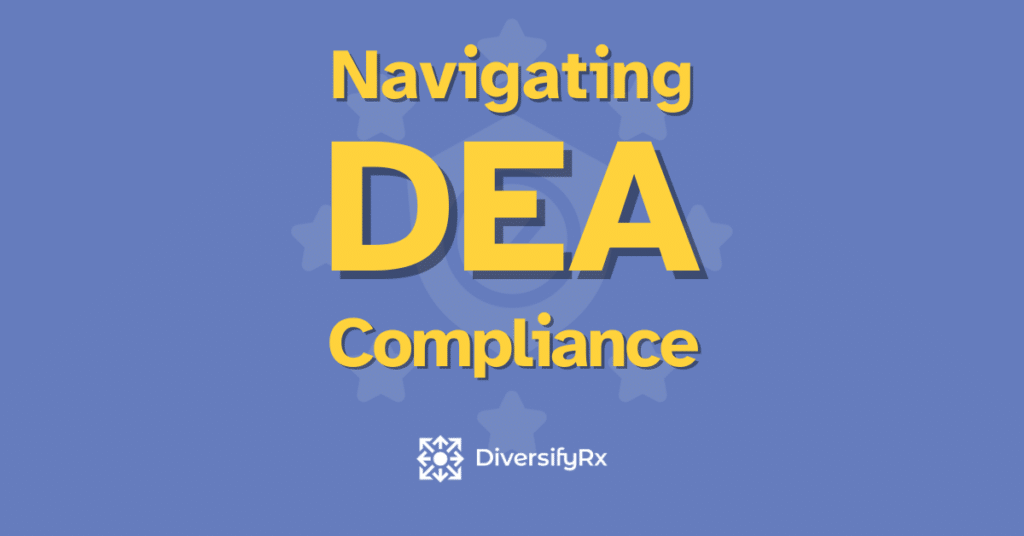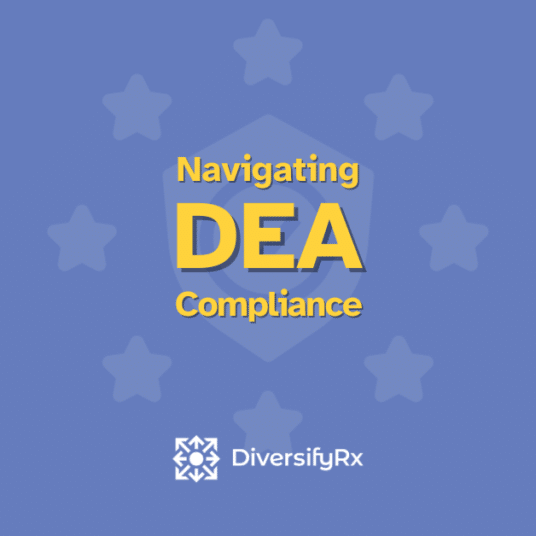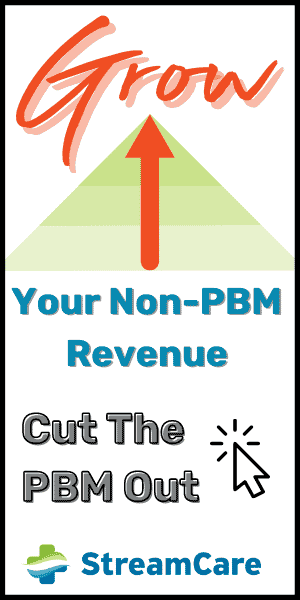It is important to stay on top of DEA compliance in this ever-changing world.
Many changes, requirements, and increases in enforcement are heading to independent pharmacy owners in November. In a recent podcast, Jeff Hedges from RJ Hedges shared with us some of the new items the DEA is looking for in your pharmacy. Our goal is to equip you with the knowledge and understanding to ensure your pharmacy remains compliant, minimizing the risk of DEA sanctions.
Understanding DEA Compliance
DEA, the agency responsible for regulating controlled substances, is stepping up actions with independent pharmacies. The control and distribution of controlled drugs have always been highly regulated. However, recent changes are imposing additional responsibilities on pharmacies, making it essential to stay updated and ensure DEA compliance.
Corresponding Responsibility
One of the key changes in DEA compliance is the concept of “corresponding responsibility.” When a doctor prescribes a medication, if it falls below 50 MME (morphine measurement equivalent), pharmacies are generally in the clear. However, if the prescription falls within the 50 to 89 MME range, additional steps are required. Pharmacists need to communicate with the prescribing physician, review the patient’s prescription history through the PMP (Prescription Monitoring Program), and document the conversation in the patient’s profile. It’s important to note that while the DEA does not explicitly require documentation, it is strongly recommended. Without proper documentation, it’s as if the conversation never happened.
For prescriptions exceeding 90 MME, the situation becomes more complex. The DEA and field offices have varying approaches, and this can create challenges for pharmacies. The CDC has issued guidelines on managing opioids to prevent misuse, but different field offices may still rely on older guidelines. This discrepancy can lead to confusion and increased scrutiny. Pharmacy owners must be prepared to handle these situations proactively.
Developing a Treatment Plan
When you are dispensing higher quantities and strengths of opioids, your pharmacist will need to create a treatment plan in conjunction with the prescriber. What?!?! I hear ya! Yes. You will need to work on a treatment plan with the doctor. No. Not all doctors are going to like this. Yes, you still have to do it.
To streamline the process and make it more manageable for both pharmacies and physicians, RJ Hedges has developed a treatment plan template. The pharmacy can partially fill out this plan and then send it to the prescribing doctor for completion. It outlines how the patient’s opioid use will be managed, ensuring proper documentation of the treatment approach. This tool can help foster collaboration between pharmacies and prescribers, reducing the burden on both parties.
Managing Opioid Combinations
Another important aspect of DEA compliance is the management of opioid combinations. The DEA is especially vigilant when it comes to prescriptions that include both opioids and benzodiazepines. These combinations raise red flags and require additional attention and documentation. Pharmacists must communicate with prescribers and, when necessary, refuse to fill prescriptions without the proper documentation. This process can be challenging, but it’s crucial to protect both the pharmacy and the patient.
Managing Background Checks
The DEA mandates that anyone with access to controlled substances must undergo a criminal background check. This check ensures that individuals with felony convictions related to controlled substances are not permitted to work in the pharmacy. It’s essential to keep these checks on file and periodically renew them, roughly every seven to ten years. Failure to comply with this requirement can lead to significant fines and legal consequences.
DEA Registration Designations
When obtaining a DEA license, pharmacies must navigate various registration designations, which can be a complex process. The primary designations include:
- Registrar: The individual solely responsible for controlled substances, including ordering and receiving.
- Coordinator: A secondary role, able to perform most functions similar to the registrar, ensuring there is a backup.
- Pharmacist: Responsible for overall supervision and must hold a coordinating role or at least be aware of the processes.
DEA inspections may reveal any deficiencies in these designations, making it vital for pharmacies to have their registration designations in order.
Staying Diligent with DEA Compliance
DEA compliance is more important than ever in the pharmacy industry, and staying up-to-date with the latest changes and requirements is crucial. As the opioid epidemic continues to be a pressing concern, pharmacies must be prepared for increased DEA inspections. Maintaining thorough documentation, implementing treatment plans, and understanding DEA designations are essential steps in ensuring compliance.
Pharmacy owners, remember that staying compliant with DEA regulations not only keeps your pharmacy on the right side of the law but also strengthens relationships with prescribers and enhances patient care. In a challenging and ever-evolving healthcare landscape, compliance is your ticket to a secure and successful pharmacy business.
If you’re concerned about your pharmacy’s controlled substance compliance or need assistance navigating the complexities of DEA requirements, we highly recommend chatting with RJ Hedges. They offer comprehensive services, tools, and expert guidance to keep your pharmacy in good standing. Don’t wait until the DEA is knocking on your door; proactively address compliance issues to protect your patients and your business.
For more information and to get in touch with RJ Hedges, visit their website at rjhedges.com. You can also reach out to them via email at sa***@******es.com or by phone at 724-357-8380.
Be sure to check out our full YouTube channel for more compliance episodes, in addition to our many independent pharmacy growth strategies and tactics shows. DiversifyRx is here to help you succeed with your independent pharmacy.
















